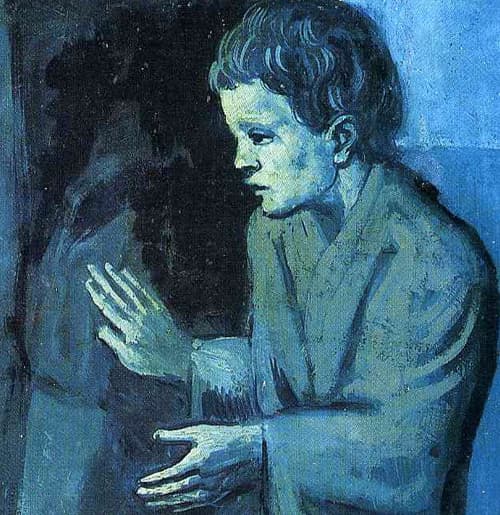Brooke Lea Foster,
The Way They Were: Dealing with Your Parents' Divorce after a Lifetime of Marriage
(Three Rivers Press, 2006, 320 pages).
Brooke Lea Foster frames The Way They Were as a guide to help adult children (as opposed to young children) grieve their parents' divorce. Foster's thesis is that divorce damages young children and adult children equally but non-identically. Adult children especially suffer from an implicit expectation that, as adults, they will be able to cope somehow automatically with their parents' divorce, and concomitantly from a lack of support resources targeted at their particular situation. Foster offers her book as one such support resource, drawing loosely from sociological and psychological research and heavily from personal experience of her parents' divorce and personal interviews of similarly situated adult children.
The chapters address thematic areas of experience for adult children of divorce - the inevitability and necessity of grieving; the ways in which relationships between parents, siblings, extended family, and stepfamily are reconfigured or destroyed; the pervasive damaging effects of infidelity; and the potential for recapitulation of this damage in the relationships and marriages of adult children. Foster spends most of her chapters relating the experiential material that she has gathered, only occasionally offering the reader pieces of general advice on each theme. The primary points of each topic are reproduced at the end of each chapter in a bulleted list.
The book's best offerings are its concrete personal accounts of grief. It is impossible to read these experiences and miss the immense violence of divorce - indeed, as the weight of the material accumulates, the accounts become quite grueling to read. Foster writes with warmth and care, and her ability to display these facets of damage and suffering without trivialization or reduction is commendable.
Yet Foster is not as successful when she moves from experience to advice or analysis. Firstly and most obviously, her advice and analysis is very abstract, and its usefulness depends on the reader's ability to concretize it. "Establish boundaries early," for example, in itself says very little and sounds like a platitude. But secondly and most importantly, Foster's treatment of these matters is entirely contiguous with the popular wisdom of the culture, and so, from a Christian perspective, recapitulates the terms of the problem in her proposed solutions. To be sure, much of her advice is straightforward and practical - "Be careful not to say hateful things you will later regret" is unobjectionable enough. Yet she also advises that, in the face of the chaos of divorce, adult children need to recall their autonomy, to dictate the boundaries and terms of relationship between themselves and their families - and here one begins to see the problem emerge, even as one can simultaneously grant a provisional, occasional sense of truth to this.
To be sure, Foster tries to avoid explicit ideological claims about marriage and family in her book, presumably because she wishes to resonate with the largest possible audience and because one cannot refute personal experience. It would be wrong, therefore, to claim that Foster's work is ideologically-driven. Yet precisely because she never attempts to move beyond a "surface" experiential account to the heart of things, her work is permeated by a largely unexamined liberal-secular vision of the human person, marriage, and family. Claims that she takes for granted - e.g. that marriage is predicated on the spouses' happiness and right to fulfillment, or that divorced parents will take up new sexual relationships as a matter-of-course, or that the marital-familial bond is essentially contractual - rely on this anthropology. Readers that do not share the same assumptions will notice the dissonance and become alienated from the text.
It is important to read a book for what it is, rather than for what it is not. Nevertheless, it should be noted that even a religious horizon is virtually absent from this book, much less a distinctively Christian or Catholic one. Foster's otherwise rich account of the concrete experience of divorce suffers from this omission. Did your parents' divorce cause a crisis of faith? Did you find it difficult to pray? Were your parents religious? Did their divorce scandalize your church? These are fundamental facets of the experience of divorce for vast numbers of people, and they are eminently worthy of discussion, yet left completely unaddressed by Foster. The problems grow deeper upon moving to the explicitly Christian, where such fundamental categories as repentance, forgiveness, sacrificial love, vicarious suffering, and total self-gift in the form of a permanent vow must radically qualify all of Foster's advice and analysis.
The Way They Were is helpful as a sobering portrait of the concrete destructive power of divorce, and as a gauge of the contemporary culture's attitudes on marriage and family. Its fundamental claim - that divorce damages adult children too - is eminently worthy of attention. The book may also bring some comfort to adults suffering through their parents' divorce, encountering in the book others like themselves. But owing to the book's implicit liberal-secular anthropology and its neglect of the religious horizon of human experience, it will offer little insight or solace to those for whom religion is a fundamental axis of life, especially Christians who view the reality of marriage and family as intrinsically ordered toward a culture of life and a civilization of love.
Matthew Newell is a Ph.D. student at the John Paul II Institute for Studies on Marriage and Family at The Catholic University of America.



